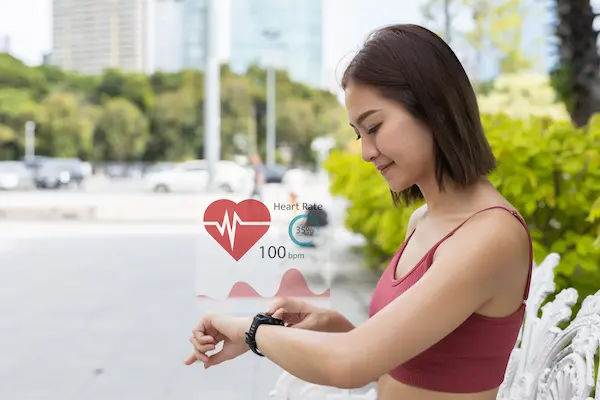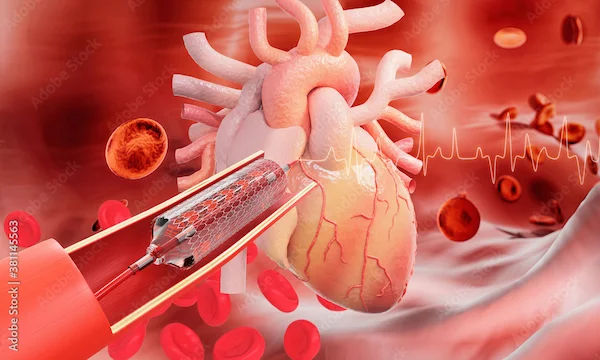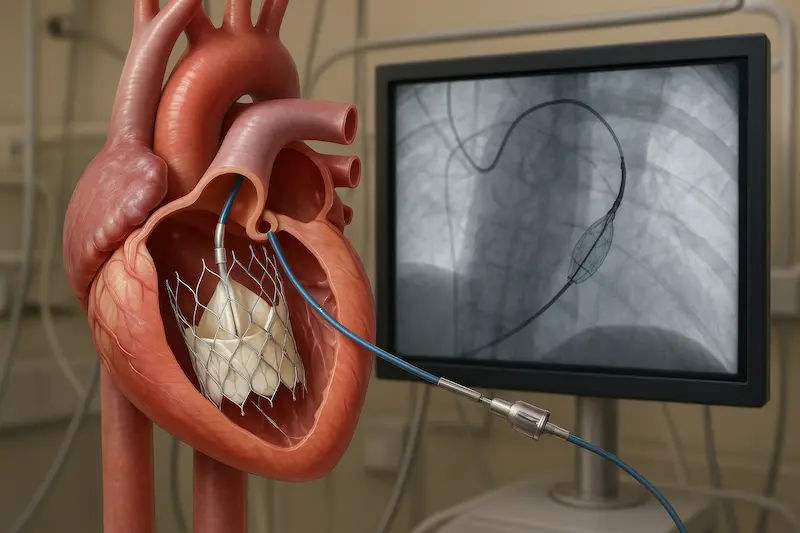- Female
- 22 Years
- 22/01/2025
I'm experiencing breathlessness when I exert myself and my heart rate seems really high. The recent echo shows mild TR, mild PAHRVSP at 45 mmHg, and a mild MR jet area of 2.5 sqcm, with tachycardia at 121 bpm. My hemoglobin and thyroid levels are normal, but I'm a bit concerned about the mild PAH. Should I be worried about this and check in with a doctor?
Answered by 1 Apollo Doctors
Yes, mild pulmonary arterial hypertension (PAH) should be followed up by a doctor, especially since you are experiencing breathlessness on exertion and have a high heart rate. Treatment for PAH may include medications such as sildenafil (Revatio) or tadalafil (Adcirca) to help lower the blood pressure in the lungs. It is important to monitor and manage PAH to prevent further complications.
Dr. Dr Khaleel Suggests...
Consult a Cardiologist
Answered 04/07/2025
0
0

More Cardiology Health Queries
View allI'm experiencing chest pain in the middle, and sometimes it feels like a pulsing sensation. It just started yesterday. Should I be worried about this? What could it mean?
Chest pain can have various causes, including heart problems, muscle strain, or digestive issues. Since chest pain can be a symptom of a serious condition, it is important to seek medical attention promptly. In the meantime, you can take over-the-counter pain relief medication like acetaminophen (e.g. Tylenol) at a dose of 500mg every 4-6 hours as needed for pain. However, if the chest pain is severe or persistent, it is crucial to seek immediate medical help.
Answered by 1 Apollo Doctors
I've got some concerns about my recent lipid profile results. My LDL cholesterol came back at 135.8 mgdl and my total cholesterol is 209.1 mgdl. Should I be worried that this indicates a serious health problem? If it's something to be concerned about, what steps can I take to address it?
Having LDL cholesterol levels above 130 mgdl and total cholesterol levels above 200 mgdl can increase your risk of heart disease. To manage your cholesterol levels, you can start by making lifestyle changes such as following a healthy diet low in saturated fats and cholesterol, exercising regularly, maintaining a healthy weight, and avoiding smoking. In addition to lifestyle changes, your doctor may prescribe medication to help lower your cholesterol levels. One common medication used to lower LDL cholesterol is Atorvastatin, which is usually prescribed at a starting dose of 10-20 mg once daily. It is important to take the medication as prescribed and follow up with your doctor regularly to monitor your cholesterol levels.
Answered by 1 Apollo Doctors
I'm having this sharp pain in my chest, kind of in the middle but a little to the left, but it really only hits when I move my shoulder forward. Lately, I've also noticed this chest pain and feeling of unease when I'm lying down, though it seems to go away if I start walking or just stand up. I'm getting a bit worried. Could this be related to my heart or lungs?
It sounds like you may be experiencing musculoskeletal chest pain, especially since the pain worsens with shoulder movement. However, given your recent chest pain and uneasiness while lying down, it's important to rule out any heart or lung issues. I recommend you take an over-the-counter pain reliever like ibuprofen (e.g., Advil) for the musculoskeletal pain. If the chest pain persists or worsens, or if you experience any other concerning symptoms, please seek medical attention for further evaluation and possible imaging tests like an ECG or chest X-ray.
Answered by 1 Apollo Doctors
Disclaimer: Answers on Apollo 247 are not intended to replace your doctor advice. Always seek help of a professional doctor in case of an medical emergency or ailment.




